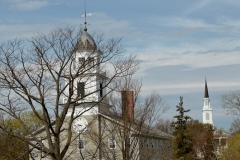Fall Semester Planning and Vaccination Requirements
| by Laurie Patton and Jeff Dayton-Johnson
As we continue to plan for a return to more normal operations in the fall semester, we are writing with some updates about vaccination expectations and requirements as well as our return to more in-person work and learning.


